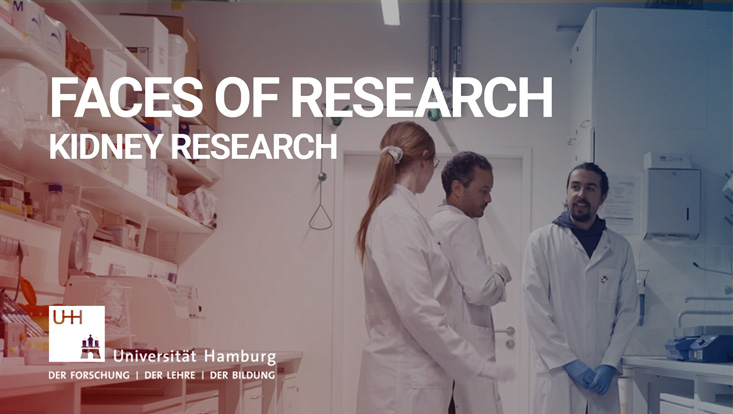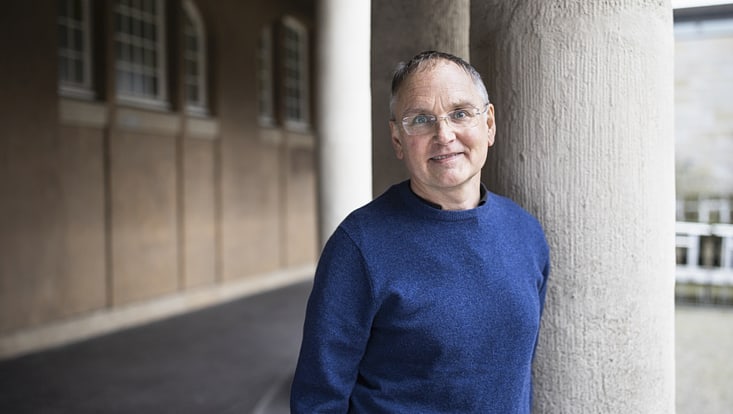Onora O’Neill speaks at the Universität Hamburg
11 December 2018, by Prof. Matthew Braham

Photo: Onora O'Neill
Onora O'Neill is one of the world’s most distinguished contemporary moral philosophers. On December 18 she will give a lecture at the Universität Hamburg on “Rethinking the Ethics of Communication”.
Professor O'Neill’s work covers political philosophy and ethics, international justice, bioethics and Kant. She is emeritus Professor of Philosophy at the University of Cambridge. She is a member of many national and international academies of science and been bestowed many honors and distinctions for her dedicated work on justice. Her scholarly work and selfless public engagement have received the highest kind of recognition in Germany: in 2016 Professor O'Neill was awarded the Knight Commander’s Cross of the Order of Merit (Großes Bundesverdienstkreuz). In 2017 followed two of the most prestigious international prizes in the humanities: the Holberg and Berggruen prizes.
An outstanding philosopher
Professor O'Neill has held many key academic and public positions in Britain: she is a former President of the British Academy (2005–09), she was chair of the Nuffield Foundation (1998–2010), she was the founding President of the British Philosophical Association (2003), was Principal of Newnham College Cambridge, and chaired the Equality and Human Rights Commission from its founding in 2006 until 2016. Professor O'Neill is currently President of the Society for Applied Philosophy. In 1999 Professor O'Neill was made a life-peer and cross-bench member of the UK House of Lords.
Onora O'Neill was born in 1941 and was partly educated in Germany (her father being a civil servant stationed here after WWII). She studied philosophy, psychology and physiology at University of Oxford before going on to complete a doctorate at Harvard University under the supervision of John Rawls – probably the most important political philosopher of the second half of the twentieth century.
One of the world’s most cited Kant experts
There is one name that is very much associated with the work of Onora O'Neill: Kant. She is considered to have transformed our understanding of Kant and for that she received the prestigious International Kant Prize in 2015, awarded by the Kant-Gesellschaft and the Fritz-Thyssen-Stiftung. Her early books are entitled Acting on Principle (1975) and Constructions of Reason (1989). While later she turned her scholarship to the complexities of the modern world and published books such as Faces of Hunger (1986) and The Bounds of Justice (2000). And one theme that Professor O'Neill is very well known for is “trust”. She has had a major impact on our thinking about trust and politics. In her own words: “Human rights and democracy are not the basis of trust: on the contrary, trust is the basis for human rights and democracy”. To learn more, I suggest to come and listen to Professor O'Neill herself.
Rethinking the ethics of communication
Professor O'Neill will be delivering a lecture entitled “Rethinking the Ethics of Communication”. This is of great importance for modern democratic societies because the disruptions to standards of communication produced by the mushrooming growth of online technologies in the last couple of decades are proving to be particularly difficult to deal with. But what is interesting here is that Professor O'Neill will look at how our standards of communication have been developed since antiquity. Over the ages these standards have been periodically disrupted by technological innovations, then revised and restored by cultural as well as by legal and regulatory changes. But there appears to be something different in this day and age. According to Professor O'Neill one source of difficulty can be traced to widespread preoccupation with “freedom of expression” and this sometimes comes at the expense of adequate consideration of our standards of morality and knowledge that are essential for adequate communication. Professor O'Neill will talk about the legal and regulatory remedies to these problems and how they may prove difficult and controversial.
The Weihnachtsvorlesung at the Universität Hamburg
Professor O'Neill will be delivering the 2. PEP Weihnachtsvorlesung. PEP is the interdisciplinary Master of Science Programme in Politics, Economics, and Philosophy. This is one of the hidden champions of the Universität Hamburg: it is an international programme that attracts over 250 applications worldwide for 35 places. This year’s lecture is also a joint effort with the lecture series “Taming the Machines”, which is organized by the Research Group Ethics in Information Technology. Basically, a cooperative enterprise across three faculties.
The PEP Weihnachtsvorlesung was introduced in 2017 as a way of bringing the PEP students and faculty together with students and faculty from the PEP disciplines. A once-a-year-intellectual-gettogether. It was inspired by the PEP students themselves. Last year we had Professor Jason Brennan from Georgetown University (Washington DC) who spoke on his latest book Against Democracy, which has been attracting a lot of public attention due to the rise of populism. Brennan diagnosed the problems of democracy, and was not advocating its end. Professor O’Neill is the perfect follow-up, because the ethics of communication is essential to properly functioning democracy.
Further information
Professor O’Neill will give her lecture on Tuesday, December 18, 6 - 8 p.m., Hauptgebäude, Hörsaal A, Edmund Siemers-Alle 1.
Flyer: The 2. PEP-Weihnachtsvorlesung (PDF)


